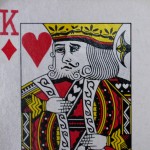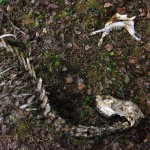 In recent weeks, I have been devouring V.S. Ramachandran’s books and videos on what can be learned about the brain by studying patients with neurological damage. To clarify my title, Ramachandran is not a phantom himself, but a doctor of phantoms – actually a ‘phantom-buster’. He is famous for curing phantom-limb syndrome – an amputee’s stubborn, often debilitating, physical awareness of a limb that has been surgically removed – by an amazingly simple, low-tech trick with mirrors.
In recent weeks, I have been devouring V.S. Ramachandran’s books and videos on what can be learned about the brain by studying patients with neurological damage. To clarify my title, Ramachandran is not a phantom himself, but a doctor of phantoms – actually a ‘phantom-buster’. He is famous for curing phantom-limb syndrome – an amputee’s stubborn, often debilitating, physical awareness of a limb that has been surgically removed – by an amazingly simple, low-tech trick with mirrors.
The ‘Phantom-Buster’ Mirror Trick
One of Ramachandran’s patients was desperate for relief from pain in his phantom arm, which he felt to be cramped and paralyzed. As described in A Brief Tour of Human Consciousness:
We propped up a mirror vertically on a table…so that it was at right angles to his chest, and asked him to position his paralyzed phantom left arm on the left of the mirror and mimic its posture with his right hand, which was on the right side of the mirror. We then asked him to look into the right-hand side of the mirror so that he saw the mirror reflection of his intact hand optically superimposed on the felt location of the phantom. We then asked him to try to make symmetrical movements of both hands, such as clapping or conducting an orchestra, while looking in the mirror. Imagine his amazement and ours when suddenly he not only saw the phantom move but felt it move as well.

 This post is an overview of the Phantom Self project, as I conceive it at the outset. It presents an overall structure of my case for conceptual reform. It does not state the entire argument, as most supporting detail will be left to subsequent posts. It is a plan and a rough map, not the journey itself, in the course of which there will certainly be unscheduled detours.
This post is an overview of the Phantom Self project, as I conceive it at the outset. It presents an overall structure of my case for conceptual reform. It does not state the entire argument, as most supporting detail will be left to subsequent posts. It is a plan and a rough map, not the journey itself, in the course of which there will certainly be unscheduled detours. An exchange of letters between Ian Brown and Jean Vanier was published in the Globe and Mail of Feb. 21, 2009, under the headline, “
An exchange of letters between Ian Brown and Jean Vanier was published in the Globe and Mail of Feb. 21, 2009, under the headline, “